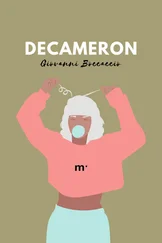It was all hard work. It required time. Time was something that Kleerekoper had in great abundance. This is what pi looks like taken to the 761st decimal place:
3.1415926535
8979323846
2643383279
5028841971
6939937510
5820974944
5923078164
0628620899
8628034825
3421170679
8214808651
3282306647
0938446095
5058223172
5359408128
4811174502
8410270193
8521105559
6446229489
5493038196
4428810975
6659334461
2847564823
3786783165
2712019091
4564856692
3460348610
4543266482
1339360726
0249141273
7245870066
0631558817
4881520920
9628292540
9171536436
7892590360
0113305305
4882046652
1384146951
9415116094
3305727036
5759591953
0921861173
8193261179
3105118548
0744623799
6274956735
1885752724
8912279381
8301194912
9833673362
4406566430
8602139494
6395224737
1907021798
6094370277
0539217176
2931767523
8467481846
7669405132
0005681271
4526356082
7785771342
7577896091
7363717872
1468440901
2249534301
4654958537
1050792279
6892589235
4201995611
2129021960
8640344181
5981362977
4771309960
51870721134
Kleerekoper planned to reach the 800th decimal place by the end of summer. He would celebrate his accomplishment with a dish of creamy Dutch Advocaat. He wondered if Mrs. Fairfax had ever tried it.
He was thinking of her.
He was thinking of her because she was at that moment on this third morning getting out of her car, which was parked right in front of his apartment building. Her son was with her. The woman was like a Dutch Shepherd Dog with a bone. He was the bone. It rankled him. He was curious about what tasty dessert she’d brought along this time, but still, it rankled him.
It was cake, as it turned out. A sweet, citrus-smelling, frosting-drizzled lemon pound cake.
His resistance was shattered.
Within minutes of Mrs. Fairfax’s arrival Kleerekoper had agreed to tutor the boy twice a week. He had wanted, in spite of the cake, to tell the woman and her son to leave him alone now and forevermore, but there was an earnestness about the boy that touched him. Jim seemed willing to really apply himself. He didn’t have a head for numbers, but that wasn’t his fault. Kleerekoper’s own head was too filled with numbers, he sometimes thought. Because they were his refuge. Pi was his refuge. He wondered how he should go on living if he didn’t have something to occupy his empty hours. Only so much of his time could be given to his undergraduates. And during the long winter break, there weren’t even any of them around.
“Twice a week,” Kleerekoper repeated. “Ninety minutes a session. Make note that I plan to work you hard.”
Jim nodded.
The first two tutoring sessions went well. Jim learned things. He retained important mathematical concepts imparted to him by an excellent teacher. Kleerekoper had never had a child, had spent very little time around children or adolescents. This was something new for him — working with the boy, guiding him, helping him to understand the simple things that Barend had mastered in early childhood.
The third session found Jim unfocused, distrait.
“What’s the matter? Why can’t you concentrate?” asked the teacher.
“I’ve been noticing: there are no pictures on your walls.”
“No. I’m not an aficionado of the visual arts, of any of the aesthetic arts. Seeking beauty in an ugly world is, to me, a fairly unavailing occupation.”
“I mean, Dr. Kleerekoper, that there aren’t any photographs —no photographs of people on your walls. Or anyplace else.”
The boy was restless. He wandered around the room, touching its naked, empty paneling.
“My family is dead. I choose to remember them only through my memories.”
“My mother told me this — about your family. Last night.”
“What else did your mother say about my family?”
The boy sat back down. “It doesn’t matter. I’m having trouble with problem number four. Can you help me with number four?”
“I’ll help you with number four if you’ll tell me why the subject of my family came up last night.”
Jim took a moment to answer. When he spoke, he withheld his gaze. It was hard to look at Kleerekoper as he said it. “We saw pictures of some of those men in the camps. The ones who survived. They looked like skeletons.”
“Yes. That’s right.”
“My mother prayed last night with me. She prayed to God that He won’t let this ever happen again.”
Kleerekoper sat down at the table next to Jim. He put his palm under the boy’s chin and raised his face to look at him. “I regret to inform you, James, that her prayers are in all likelihood falling on nonexistent ears.”
“You don’t believe in God?”
The professor allowed the question to answer itself.
“I sometimes wonder if there’s a God myself,” said Jim. “I haven’t told my mother.”
“It’s best to keep such musings to yourself. James, I want to show you something.” Kleerekoper got up from his chair and fetched a folder from his desk across the room. “You’re the first to see this,” he said, opening the folder. “I spoke of pi the other day. Do you remember?”
“It’s a number that has no end. It goes on and on like eternity.”
“That’s right. I’ve calculated this unending number to the 761st decimal place. See?”
“Why?”
“Why what?”
“Why do you calculate a number that has no end?”
“I happen to derive some measure of satisfaction from it. Why do we do any of the things we do?”
“Are you looking for something, Professor?”
“What do you mean, ‘looking’?”
“Numbers that continue on and on like that, at some point something has to happen, right?”
“I still don’t get your meaning, boy.”
Jim wriggled slightly in his chair. “I don’t know how to say it. You say they’re just a bunch of numbers that don’t make sense. What if they did make sense? I mean, all those numbers — they have to be coming from somewhere .”
“They’re coming from nowhere , Jim. They’re already here. I just want to find out what they are. I’m inquisitive. Most mathematicians are .”
“What if God put them there?”
Kleerekoper smiled. “I thought you weren’t sure if there was a God.”
“I’m playing the devil’s — what?”
“The devil’s attorney, I think it is. Yes, you are, James. But there is no God. Show me the proof of God’s existence against all evidence to the contrary, my boy, and I will engage you further in this discussion. But for now, we must return to our far less fanciful discussion of binomial coefficients. What’s giving you trouble about problem number four?”
Two weeks later, Barend Kleerekoper took pi to the 762nd decimal point. The number was 9. A week after that, he calculated pi to the 763rd place. Another 9. He’d seen double 9s before. Nothing unusual here. School was back in session. The next decimal place wasn’t reached for another couple of weeks: a third 9. Interesting. There had only been three previous appearances of numerical triplets up to this point: a trio of 1s, then 5s, then 0s. A week and a half later, very early in the morning, Dr. Barend Kleerekoper made a rather startling discovery: a fourth 9. Quadruplet 9s! The very first appearance of a numerical foursome. He celebrated his discovery by eating a whole plate of brownies left by Mrs. Fairfax when she picked up Jim the night before.
Читать дальше












